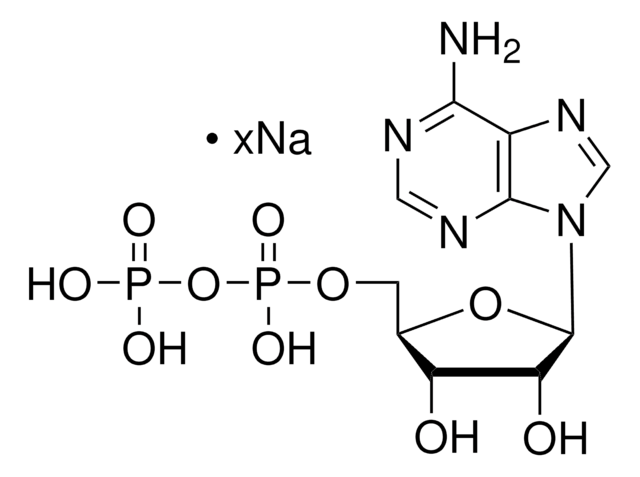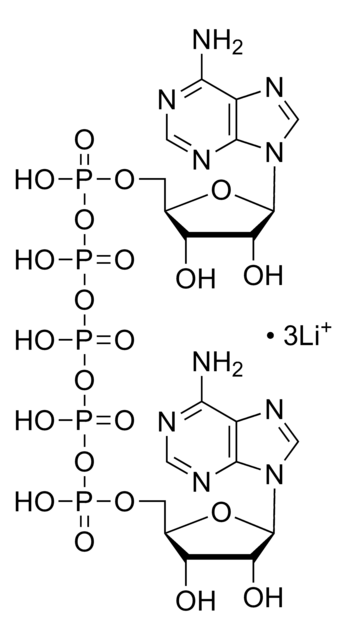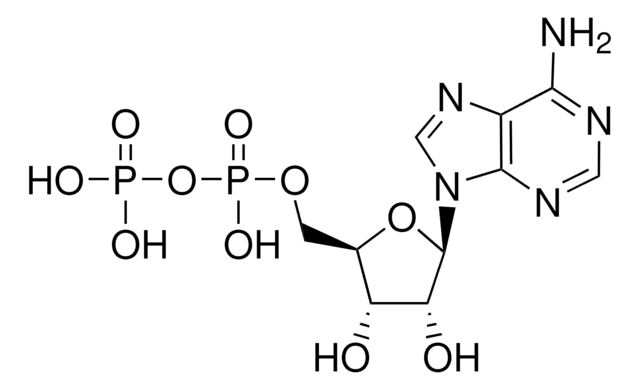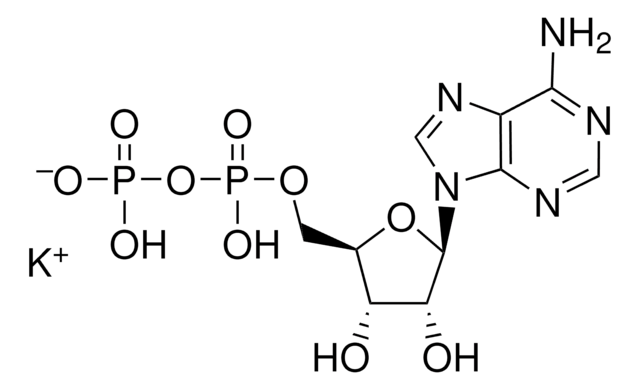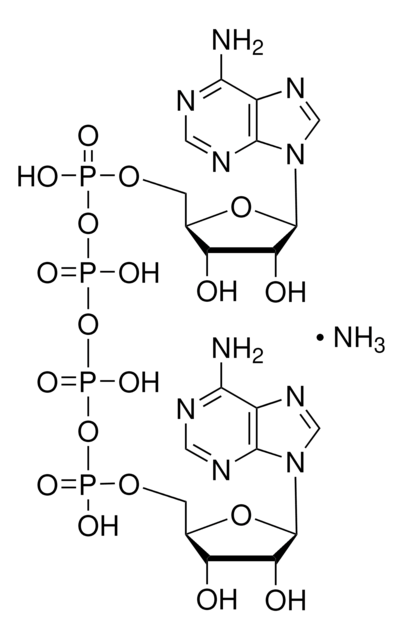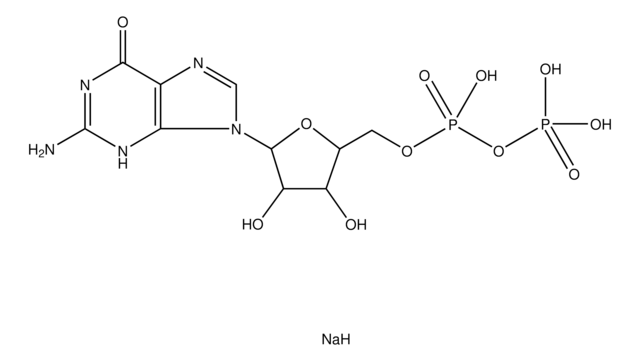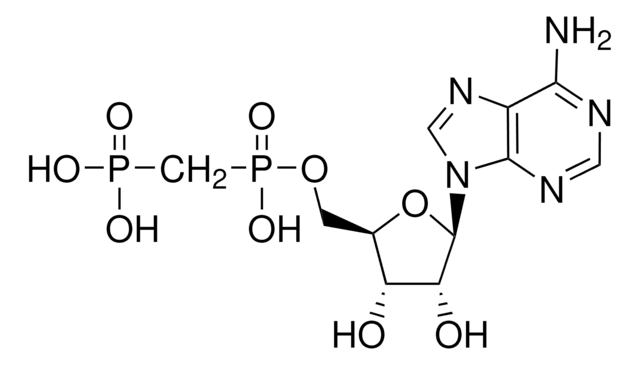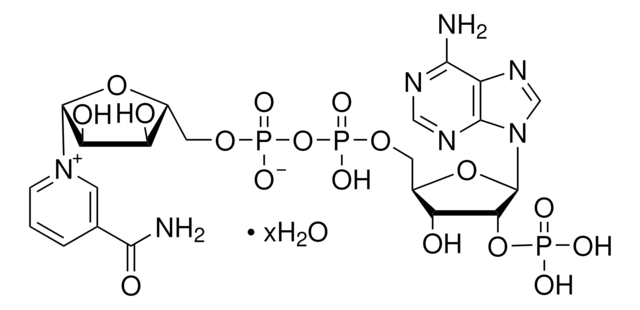D4022
P1,P5-Di(adenosine-5′) pentaphosphate pentasodium salt
≥95% (HPLC), powder
Sinónimos:
A(5′)P5(5′)A, Diadenosine pentaphosphate pentasodium salt
About This Item
Productos recomendados
origen biológico
synthetic (organic)
Nivel de calidad
Análisis
≥95% (HPLC)
formulario
powder
mol peso
~_1.0 kDa
color
white to yellow-white
solubilidad
H2O: 50 mg/mL
temp. de almacenamiento
−20°C
cadena SMILES
[Na+].[Na+].[Na+].[Na+].[Na+].Nc1ncnc2n(cnc12)[C@@H]3O[C@H](COP([O-])(=O)OP([O-])(=O)OP([O-])(=O)OP([O-])(=O)OP([O-])(=O)OC[C@H]4O[C@H]([C@H](O)[C@@H]4O)n5cnc6c(N)ncnc56)[C@@H](O)[C@H]3O
InChI
1S/C20H29N10O22P5.5Na/c21-15-9-17(25-3-23-15)29(5-27-9)19-13(33)11(31)7(47-19)1-45-53(35,36)49-55(39,40)51-57(43,44)52-56(41,42)50-54(37,38)46-2-8-12(32)14(34)20(48-8)30-6-28-10-16(22)24-4-26-18(10)30;;;;;/h3-8,11-14,19-20,31-34H,1-2H2,(H,35,36)(H,37,38)(H,39,40)(H,41,42)(H,43,44)(H2,21,23,25)(H2,22,24,26);;;;;/q;5*+1/p-5/t7-,8-,11-,12-,13-,14-,19-,20-;;;;;/m1...../s1
Clave InChI
NNMFUJJMJIYTSP-CSMIRWGRSA-I
¿Está buscando productos similares? Visita Guía de comparación de productos
Descripción general
Aplicación
- an adenylate kinase (AK) inhibitor in: sarcoma osteogenic (Saos-2) cells
- mitochondrial lysates during ATP synthesis
- tetramethylrhodamine methyl ester (TMRM) based membrane potential assay
- chromoplasts
Acciones bioquímicas o fisiológicas
Código de clase de almacenamiento
11 - Combustible Solids
Clase de riesgo para el agua (WGK)
WGK 3
Punto de inflamabilidad (°F)
Not applicable
Punto de inflamabilidad (°C)
Not applicable
Equipo de protección personal
Eyeshields, Gloves, type N95 (US)
Certificados de análisis (COA)
Busque Certificados de análisis (COA) introduciendo el número de lote del producto. Los números de lote se encuentran en la etiqueta del producto después de las palabras «Lot» o «Batch»
¿Ya tiene este producto?
Encuentre la documentación para los productos que ha comprado recientemente en la Biblioteca de documentos.
Los clientes también vieron
Nuestro equipo de científicos tiene experiencia en todas las áreas de investigación: Ciencias de la vida, Ciencia de los materiales, Síntesis química, Cromatografía, Analítica y muchas otras.
Póngase en contacto con el Servicio técnico